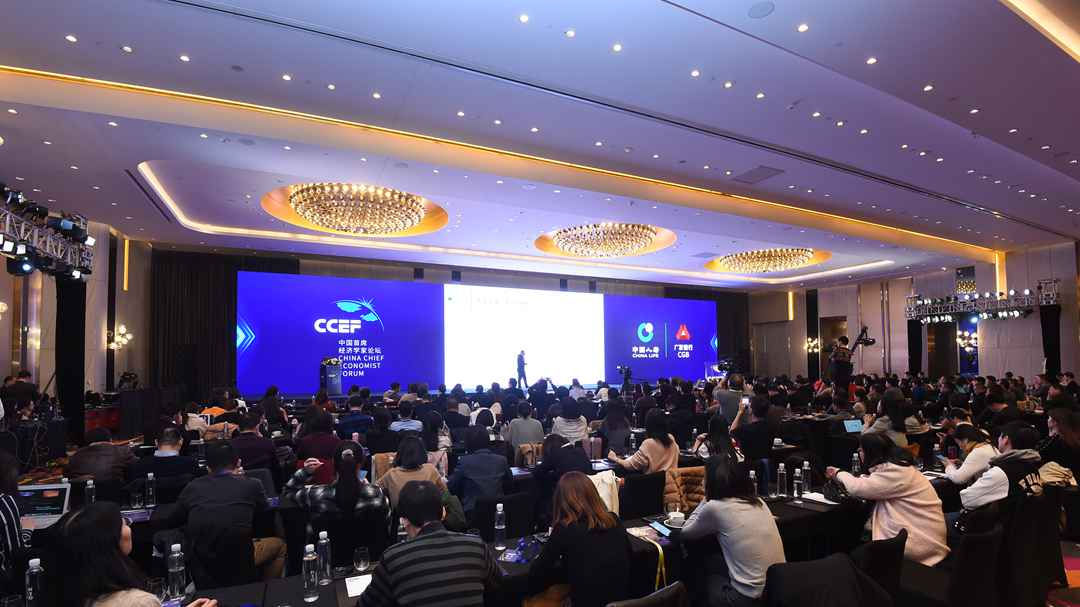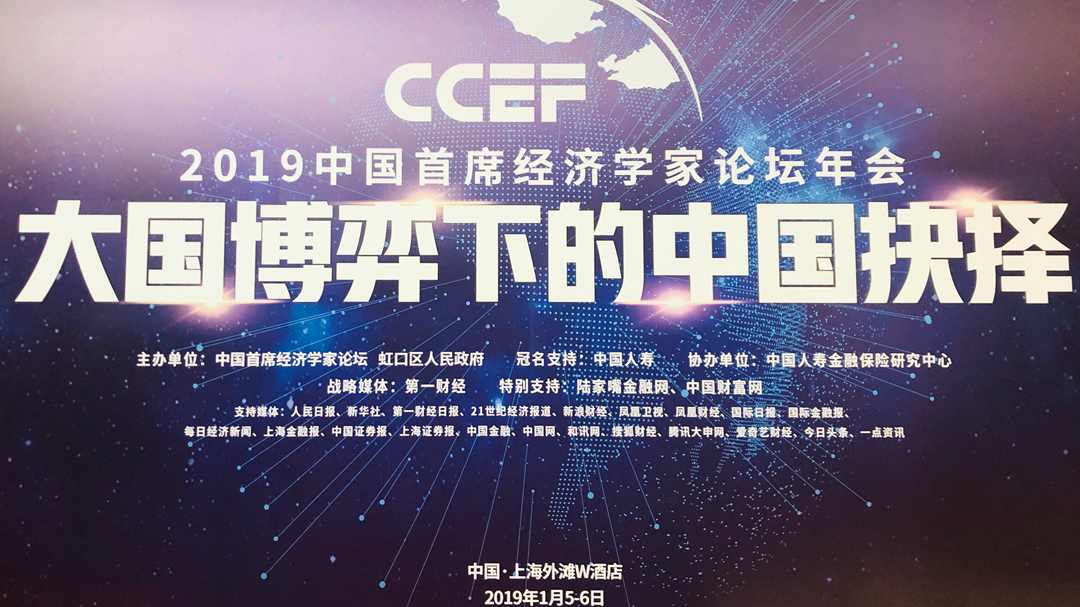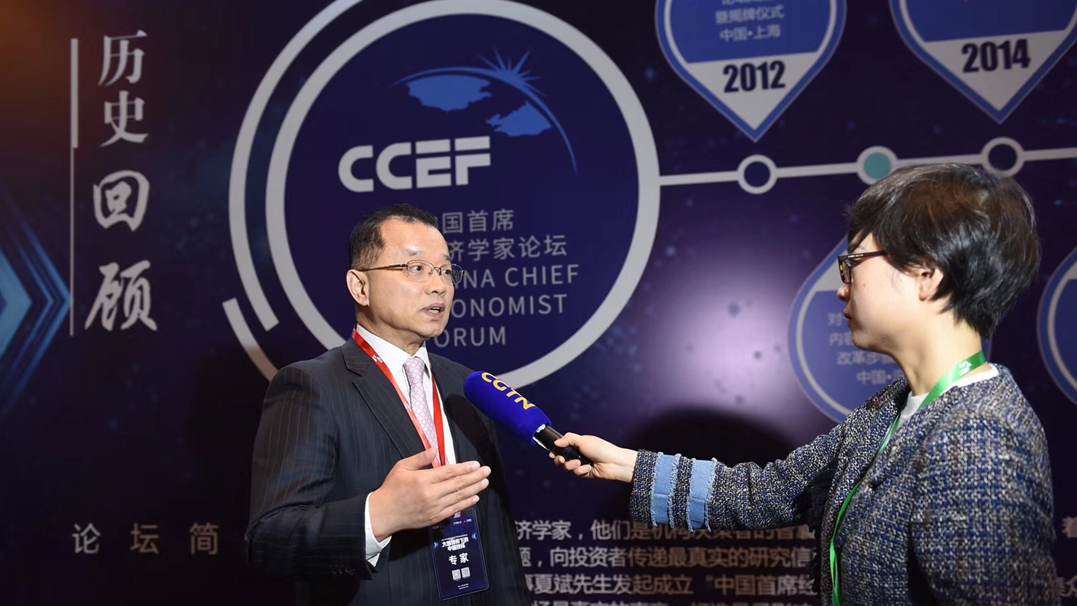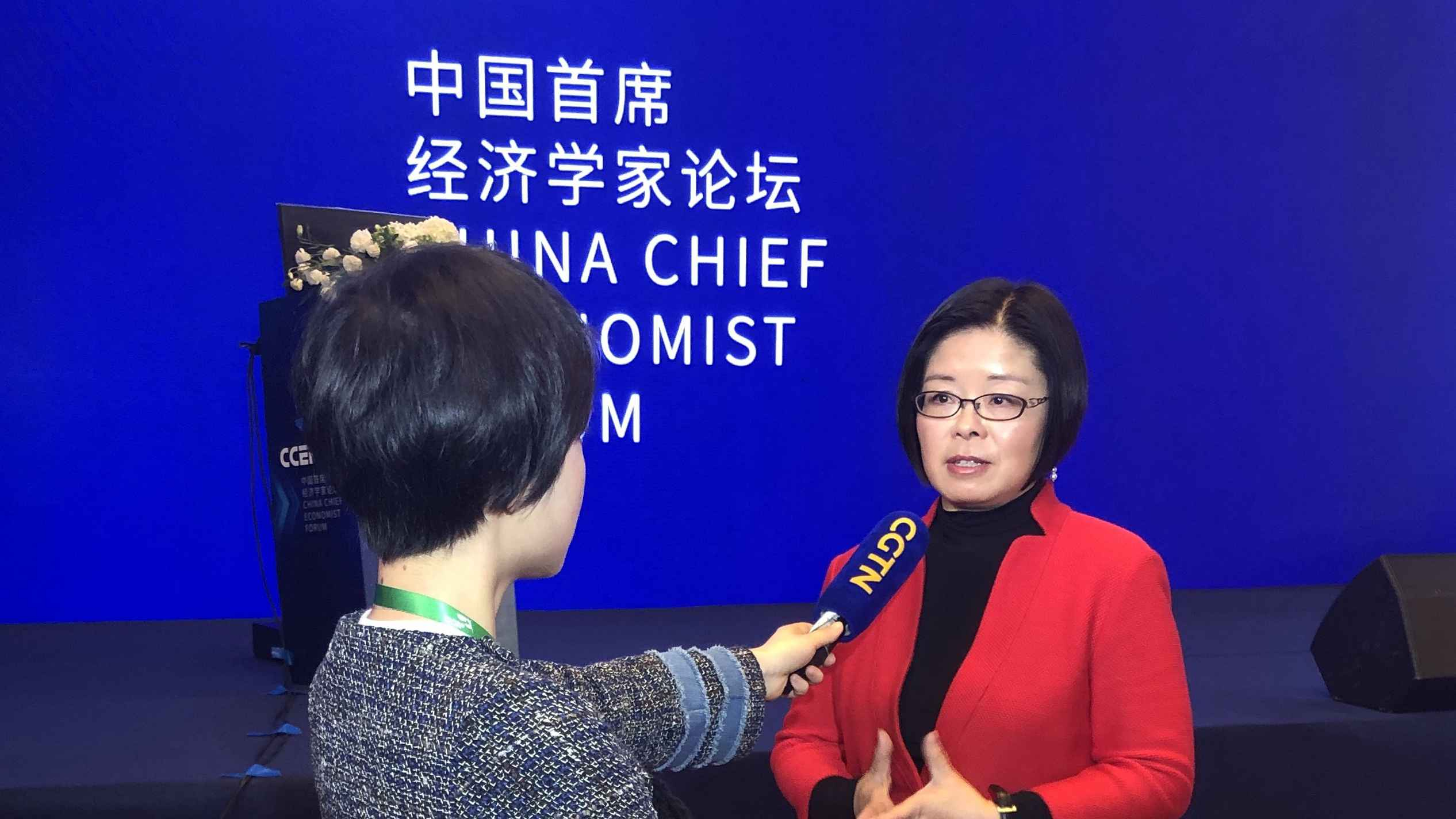
Economy
21:16, 06-Jan-2019
Chief China economists discuss expectations for 2019
Updated
21:05, 09-Jan-2019
By Xu Mengqi
02:03

At the just-concluded China Chief Economist Forum (CCEF), an annual event, which wrapped up on Sunday in Shanghai, economic experts seemed to have reached a consensus: China's economy will face more downward pressure in 2019.

The 2019 China Chief Economist Forum. /Photo by CCEF organizer.
The 2019 China Chief Economist Forum. /Photo by CCEF organizer.
The challenges come from both an internal slowdown of investment activities and external uncertainties largely resulting from the China-US trade disputes.

Theme of this year's CCEF—China's Choice in the Superpower Game./CGTN photo
Theme of this year's CCEF—China's Choice in the Superpower Game./CGTN photo
“The private sector, to a large extent, has been hit…partially because of the policy's side effect in the past few years, for example, over-capacity reduction and financial de-leveraging,” said Chen Xingdong, BNP Paribas China's chief China economist.
To lower financing costs for companies, and to support the real economy, the People's Bank of China (PBOC) announced on Friday that it would cut banks' reserve requirement ratios by 100 basis points, but Chen pointed out that the real task lies in “transmitting this increasing liquidity to the real economy, in particular to the small and medium businesses.”
Liao Qun, chief economist of China Citic Bank said that how much China loosens its money supply will also rely on the negations between China and the U.S. on March 1: “If tariffs for the 200 billion [U.S. dollars] worth of Chinese goods goes up to 25%, the government will further loosen up.”

Liao Qun, chief economist of China Citic Bank, talking to CGTN./ Photo by CCEF organizer
Liao Qun, chief economist of China Citic Bank, talking to CGTN./ Photo by CCEF organizer
Some experts, however, remain slightly more wary of the short-term counter-cyclical policy. Zhu Haibin, chief China economist of J.P.Morgan said that painfully slow growth in the near term is something China might need to bear as the structural reform, in particular the new financial regulation framework established in the last two to three years, opens up more room for sustainable growth in the long run.
Wang Tao, UBS' chief China economist, said the government's policies in the past few years to reduce leverage and excess capacities did slow the economy, but it also helped reduce the overall financial risk and make the economy more sustainable. Wang pointed to the improvement of corporate profitability as an immediate impact of the reform and a sign that businesses have become healthier.

Wang Tao, UBS's Chief China Economist, talking to CGTN./ Photo by CGTN
Wang Tao, UBS's Chief China Economist, talking to CGTN./ Photo by CGTN
Wang added that opening to more foreign investors and competition will put some pressure on domestic industries in the short term, but in the long run will benefit productivity as well.
Experts also agreed that despite current slowing growth, land reforms in rural areas and continuing urbanization, industrial upgrade, uneven regional development and all-round opening up will fuel China's economic growth in the mid-to-long term.

SITEMAP
Copyright © 2018 CGTN. Beijing ICP prepared NO.16065310-3
Copyright © 2018 CGTN. Beijing ICP prepared NO.16065310-3